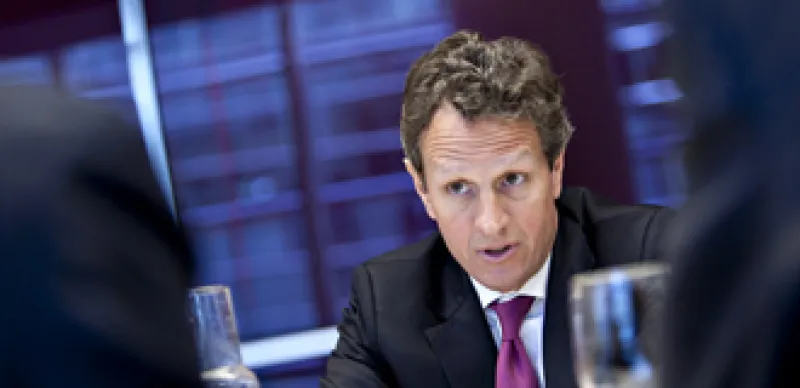
Timothy Geithner, U.S. treasury secretary, speaks during an interview in New York, U.S., on Friday, April 2, 2010. Geithner said today's March employment report shows the U.S. economy is "getting stronger." He also said business investment is expanding and exports are "coming back." Photographer: Daniel Acker/Bloomberg *** Local Caption *** Timothy Geithner
Daniel Acker/Bloomberg

